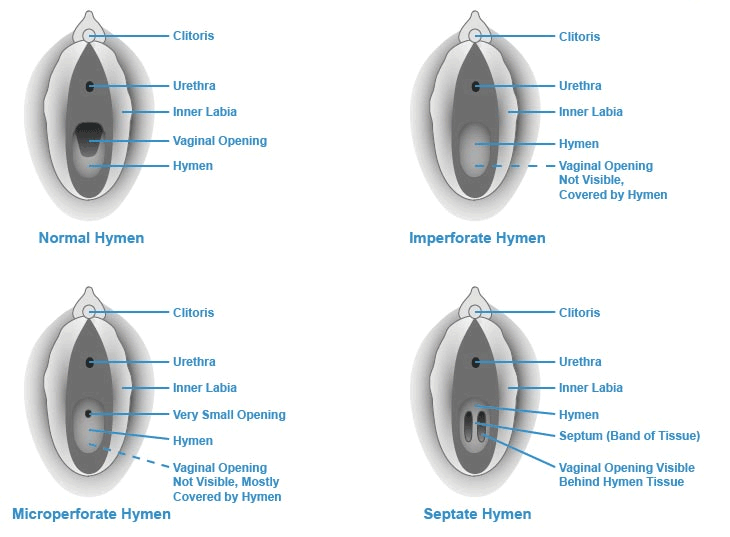What Nobody Told Me About Having Sex for the First Time- by Wardah Abbas

This is not how I had expected to feel the morning after my wedding night. I may have been inexperienced sexually going into my honeymoon, but I had done my research. I had a pretty good idea of what I’d like and what I wouldn’t. I’d read books about sex, devoured erotic novels, scoured the internet, and sought the advice of my “experienced” friends. They mostly told me how wonderful and pleasurable sex was, and how I shouldn’t be too anxious about my wedding night. I was told to be calm and just revel in it. Armed with my research and this well-intentioned advice, I was confident that I had learned enough to have a terrific honeymoon.
Waiting till my wedding night to have sex was not just a religious tradition; it was also a family custom, one that I chose to abide by. In Islam, sex outside the bounds of marriage is a no-no for both men and women. Those who did engage in it were not supposed to talk about it publicly. As a girl who had been taught by my dad all the benefits of choosing to share my body with only the one man willing to make a life commitment to me, the idea of waiting just appealed to me. I also grew up at a time when, in my community, having sex with a young lady was some sort of trophy for the guys, and I was never going to be a part of that.
I wanted a true Muslim by my own standards. That meant a man who saw women as partners in matrimony, not possessions.
As a demisexual who doesn’t feel the slightest sexual attraction in the absence of a strong emotional connection, I was more focused on other things anyway. I’d always wanted to get married, but finding “the one” took many years of searching. The unconventional girl that I was, I didn’t want a man from my community whose practice of Islam was tainted by certain cultural practices. I wanted a true Muslim by my own standards. That meant a man who believed in the equality of men and women, who respected women and their rights, and who saw women as partners in matrimony, not possessions. Until I found this man, I was just going to enjoy being fabulously single.
I met my husband for the first time over the phone. He had heard about me from a relative and wanted to meet me. Though our first conversation was brief, my heart told me right away that he could be the one. Two years and one month later, at the age of 25, I found myself in a baby pink custom-made wedding dress walking with him down the aisle.
Thanks to my amazing wedding planner, I could probably talk your ear off about all the little details of our wedding: 1,000 guests, a timeless ceremony space, and a colorful wedding hall. It was really fun. The celebration soon fizzled out, though, and my husband and I left our guests behind to proceed to our honeymoon. Seeing his excitement, I tried to put my mind at rest, hiding my anxiety behind my smile. We settled down in a beautiful resort with a zoological park and a nice restaurant, which we visited before finally heading to our room for what we assumed was going to be the best moment of our lives.
With grace and sensuality, my husband soon began making the first move; the cold ice cream he smeared all over my face and slowly down to other parts as he fed me, the beautiful words he whispered to me, and the light stroke of his fingers in my hair. My heart began to thump, and even though I had waited for this moment all my life, the anxiety I’d warned myself about kicked in. There were kisses and licking and tongue-locking. We explored each other’s bodies until we both felt we were ready to dive in. I heard my husband mumbling some words; I didn’t know what they were. But whatever they were, they happened to be the last thing I heard before letting out a deafening scream.
In that moment, it seemed as if my life was at a standstill. It felt like someone was trying to shove an 18-wheeler into a bike rack. My husband’s voice woke me from my temporary numbness. As I opened my eyes to meet his, I saw the confusion on his face. He pulled me closer and said, “I don’t think we can do this now.”
I didn’t know exactly what that meant. Could it be that we had not consummated the marriage? What exactly had happened? What was that sharp twinge I’d felt? I convinced him to try again, and this time, it was even scarier for us both as I let out another shrill noise. He couldn’t stand seeing me in so much pain. He looked so scared, and without saying a word to each other, we both gave up and settled down to sleep.
After that sleepless night, we spent the morning discussing why our first night had gone so badly, while browsing the internet for answers. I wanted to know why I’d experienced so much pain, as opposed to the pleasure I longed for. I had learned that sex could be painful for first-timers. But I’d always heard that it was just a slight pain caused by the puncturing of the hymen, which was immediately succeeded by pleasure.
As I found out firsthand, this was a fallacy, at least in my own case. But I couldn’t be the first woman to ever experience this, so why was no one talking about it? Was it taboo? Something never to be mentioned out loud? As much as I thought I had learned about sex, I began to realize there was so much I’d missed in my research. My husband and I decided not to try again until we were both psychologically ready. After all, we told each other, every marriage is different and unique in its own way.
 About a week after my wedding, I sought the opinion of a dear friend who happens to be a gynecologist. I don’t know whether I felt relieved or angry when she told me my wedding-night experience wasn’t a big deal, as it happens to some women. After a brief examination, she said that I had a lot of hymenal tissue which was relatively inflexible. It was this tissue that was causing me so much pain.
About a week after my wedding, I sought the opinion of a dear friend who happens to be a gynecologist. I don’t know whether I felt relieved or angry when she told me my wedding-night experience wasn’t a big deal, as it happens to some women. After a brief examination, she said that I had a lot of hymenal tissue which was relatively inflexible. It was this tissue that was causing me so much pain.
This of course led to me scouring the internet, trying to learn everything about hymens. Though the culture in which I grew up placed so much emphasis on the hymen, the main message was that it just had to be intact. I had no idea that the hymen, a thin membrane surrounding the opening to the vagina, actually comes in different shapes and sizes. The “normal” hymen, which is the most common, has the shape of a half moon. There are, however, three other types of hymen that can complicate first-time sex.
The imperforate hymen completely covers the opening to the vagina. In addition to preventing anything from coming in, menstrual blood cannot flow out. There’s also the microperforate hymen, which almost completely covers the opening to the vagina. It typically doesn’t affect the flow of menstrual blood, but it can be very difficult to insert or remove a tampon. Lastly, the septate hymen has a band of extra tissue that creates two vaginal openings instead of one.

Learning about all these hymenal variations made me realize how little understanding I had of my own body. I wished that I had taken the time to get familiar with my own vagina, instead of waiting till my wedding night to discover something so crucial about myself.
Ultimately, my gynecologist friend told me that I had only two options: I could go through a minor surgery to remove the hymenal tissue, or I would have to take things slowly, meaning lots of foreplay and lots of lube. My phobia of surgery caused me to choose the second option, even though she warned me it could lead to scarring, soreness, and bleeding.
“So why didn’t you tell me about all this earlier?” I asked her a bit angrily, after we’d finished discussing my options.
“Sex is naturally pleasurable,” she said. “Telling you about the other side of it would have made you uncomfortable. I didn’t want to increase your anxiety… I had no idea that you would face this problem.”
That day, I learned two things from my friend. The first was to always check my hymen before sex. If I couldn’t comfortably insert a tampon into my vagina, then penetration would likely feel painful. (I had never used a tampon before; sanitary pads are the norm among women in my country.) Over time, my friend said, the hymenal tissue would gradually tear away, and I wouldn’t need to do the tampon check anymore. I also learned to avoid the man-on-top missionary position, as my husband might have trouble finding the opening. My friend said to try either the woman-on-top position or the rear entry (doggie style), both of which would enable me to control the speed and depth of insertion.
The next couple of days found my husband basically just applying lots of lube and putting the tip in to “warm me up.” I bled a little the first three times I “had sex,” which were basically just penis warm-ups. My sweet husband was very patient and so worried he’d hurt me that we took it really slow. It was still painful, though. Sex actually didn’t stop being painful for me until after I had my first child through vaginal birth about 17 months into my marriage.
Still, if sex weren’t such a taboo topic to begin with, perhaps I would have understood that everyone’s first time is different. Perhaps I would have known to become more familiar with my own anatomy, instead of simply accepting my friends’ vague advice about how I should just relax and enjoy myself. Years later, reflecting on our now-active sex life as a couple, I can’t help but laugh at how my being such a novice ruined my honeymoon.
If I ever have a daughter, I will definitely tell her everything I wish I’d known on my wedding night.
But where was I supposed to find the information I needed? None of my family members ever told me anything about sex, not even my mum. I wouldn’t know if she knew anything about hymenal tissue, but even if she didn’t, just your basic “sex talk” would have helped a lot.
Sex is natural. It is not something to be ashamed of. Various cultures and societies have presented sex to us as something so private and shameful that we have forgotten to look into why God created something so beautiful in the first place. Instead of sweeping sensitive issues under the carpet, and suffering in silence when things go wrong, maybe we should all be a little more honest about what goes on behind closed doors.
If I ever have a daughter, I will definitely tell her everything I wish I’d known on my wedding night. I want her to be prepared, both physically and psychologically, for her first time. I don’t want her to lie there the next morning the way that I did, blaming herself and wondering what’s wrong with her body. And above all, I want her to know that she can always ask me anything she needs to know.



0 Comments